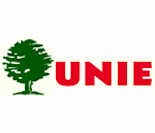Freedom Union
 The Freedom Union was formed in January 1998 by disenchanted members of parliament, who broke away from Vaclav Klaus's Civic Democratic Party after a row about party financing. They accused the party leadership of not being willing to investigate and answer serious questions about party sponsors. They were also unhappy with the leadership style of Vaclav Klaus. The row brought down the Klaus government in November 1997. Several members of the emerging Freedom Union served in the interim government of Josef Tosovsky prior to the early elections held in June 1998. Although it won 19 seats in the election the party failed to draw mass support from Civic Democrat supporters, some of whom saw them as "traitors". In September 1999, the Freedom Union, along with three other right of centre parties (the Christian Democratic Union-People's Party, the Democratic Union and the Civic Democratic Alliance) signed a pact, committing them to close cooperation in the run-up to the next parliamentary elections and in the period to follow.
The Freedom Union was formed in January 1998 by disenchanted members of parliament, who broke away from Vaclav Klaus's Civic Democratic Party after a row about party financing. They accused the party leadership of not being willing to investigate and answer serious questions about party sponsors. They were also unhappy with the leadership style of Vaclav Klaus. The row brought down the Klaus government in November 1997. Several members of the emerging Freedom Union served in the interim government of Josef Tosovsky prior to the early elections held in June 1998. Although it won 19 seats in the election the party failed to draw mass support from Civic Democrat supporters, some of whom saw them as "traitors". In September 1999, the Freedom Union, along with three other right of centre parties (the Christian Democratic Union-People's Party, the Democratic Union and the Civic Democratic Alliance) signed a pact, committing them to close cooperation in the run-up to the next parliamentary elections and in the period to follow.
From then on they were known as the "Four Coalition". The Freedom Union merged with the Democratic Union (a small right-of-centre party that came well short of gaining the 5% of votes needed to enter parliament in the 1998 election) at the end of 2001. The Four Coalition collapsed at the end of January 2002, after a row over how to solve the debt crisis of its smallest member, the Civic Democratic Alliance (another party that had failed to enter parliament in the 1998 election). Since then the Freedom Union - Democratic Union signed a new agreement with the Christian Democrats to go into the elections together with a new logo and under the title "Coalition".
The Freedom Union-Democratic Union is a right-of-centre party, committed to free-market liberalism. It combines classic right-wing policies, such as tax reductions and the introduction of tuition fees for university students, with a stress on the environment and on minority rights. A further frequent theme in the party's rhetoric is the battle against economic and political corruption. The party is strongly pro-European Union. The party vigorously advocates constitutional change to enable the Czech President to be elected directly by the electorate rather than parliament.
The Freedom Union was popular among people with higher education and particularly appeals to young people and to those disillusioned with the larger parties. Its support is mainly urban.
|
NEWSLETTER
|
| Join the GlobalSecurity.org mailing list |
|
|
|

